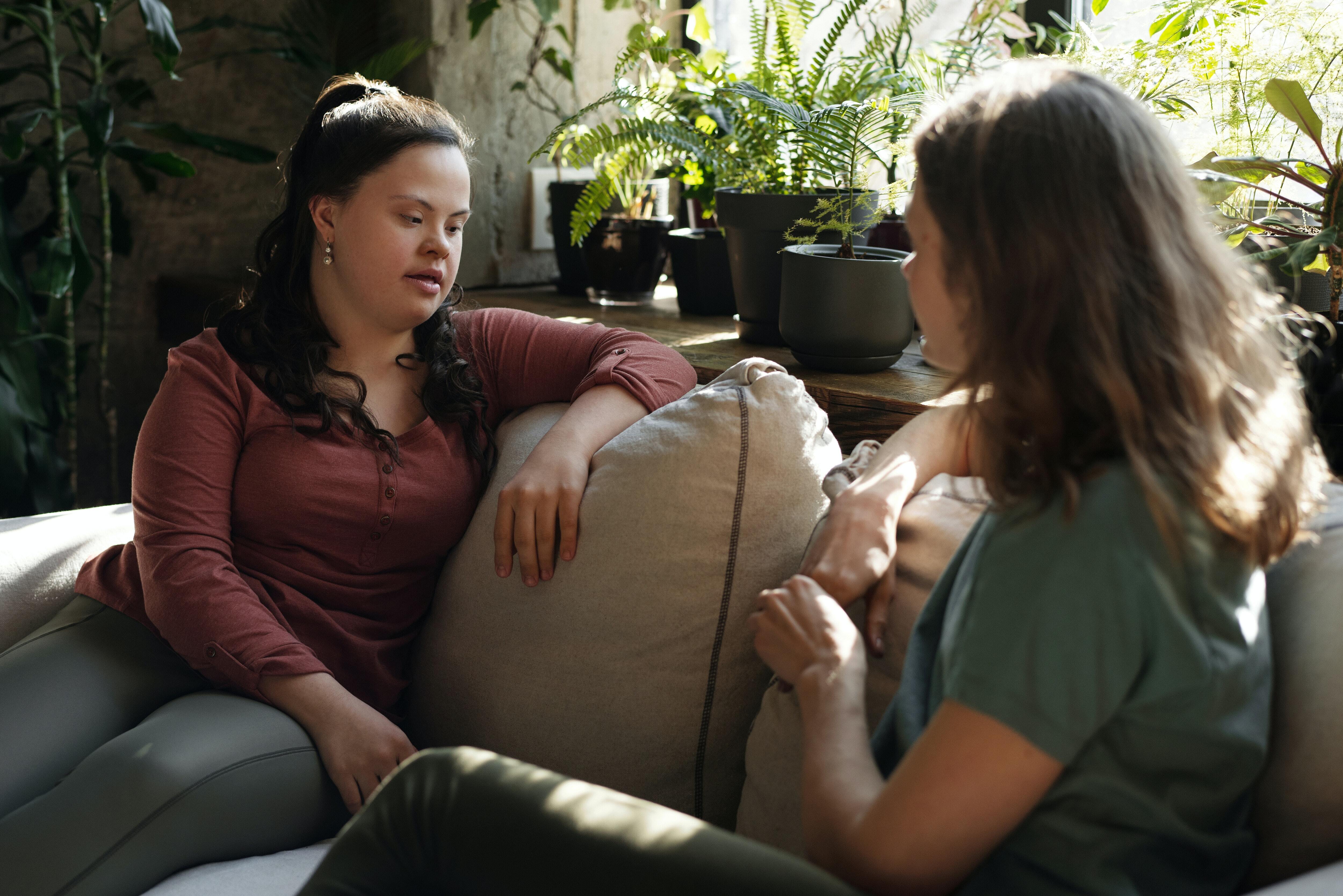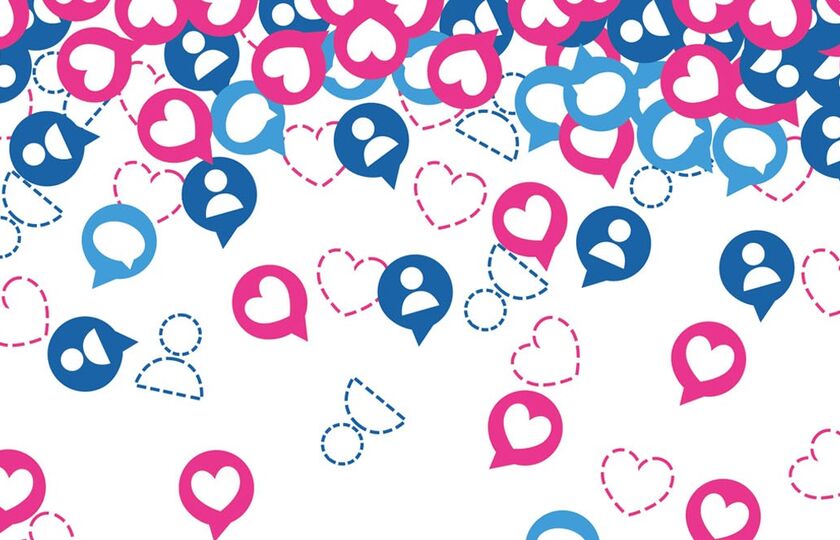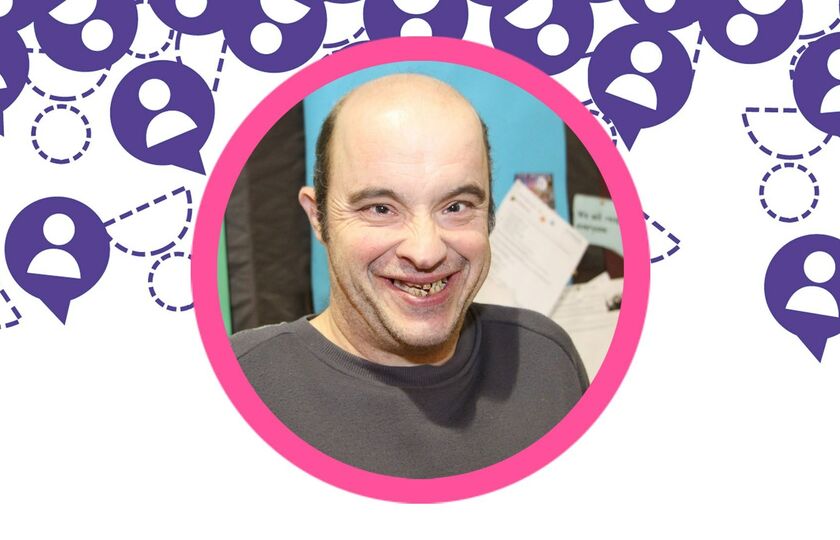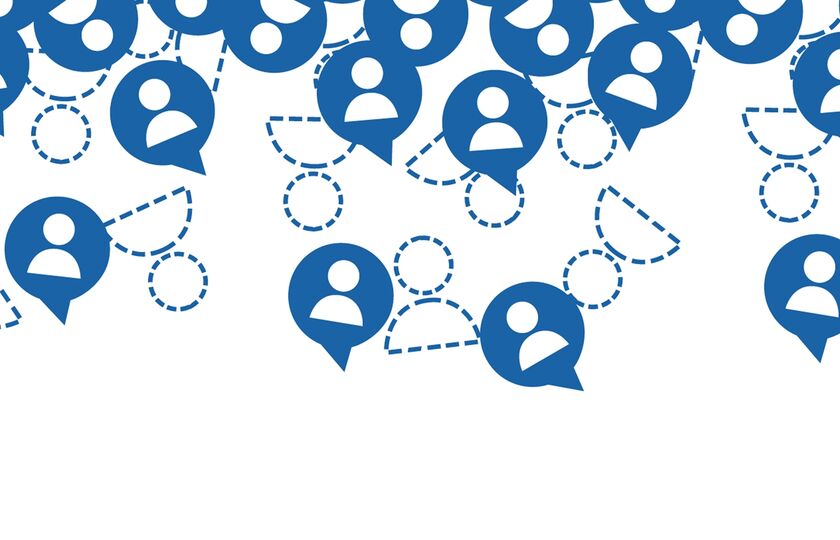A resource/ workshop pack for people with a learning disability and their supporters.
Supported Loving toolkit
Supporting friendships

Whilst Supported Loving mainly focusses on intimate relationships, we also recognise that friendship can be a stepping stone to romance.
This section of the toolkit is about friendship - what it is, why it is important and what can be done to help people make and keep friends. Having friends contributes to reducing loneliness and isolation for adults with a learning disability and autistic adults. We continue to strive to better understand and champion any area that will increase opportunities for social connection, including raising awareness and sharing good practice about platonic relationships.
Definition: Defining friendship can be complicated and challenging. One useful way of thinking about it is to say that friends:
- are people who you like and who like you
- enjoy spending time together
- are not paid to be together.
Bukowski et al (1996) have suggested that there are four elements that are present in friendships:
- Each person gains equal benefit from the relationship. This, therefore, draws on the importance of cooperation and the satisfactory resolution of potential conflicts.
- People like each other and seek out opportunities to communicate.
- The relationship is characterised by affection and one in which people have fun.
- The relationship is stable across time.
Key research
There is lots of research evidence to suggest that people with a learning disability and autistic people may struggle to make and keep friends. Research also shows that there are significant social, economic and practical barriers put in the way and that the support to form friendships is not always available.
Here are just a few examples:
- 44.6% of people with a learning disability do not think they spend enough time with friends (Mencap, 2016).
- 30.1% of people with a learning disability spend less than one hour outside their homes on a Saturday (Mencap, 2016).
- There are low levels of friendship activities amongst people with learning disabilities in supported accommodation (Emerson and McVilly, 2004).
- One in two people with a learning disability experience chronic loneliness (Jo Cox Loneliness campaign).
- 53% of disabled people feel there are barriers to making and keeping friends (SCOPE, 2014).
Autistic people may perceive friendship differently, have different priorities or goals for friendship, and have different ways of seeking and experiencing friendship than their neurotypical peers. Nevertheless, many autistic people do want and enjoy friendships with their peers. (Sosnowy et al 2019).
Legislation and policy
- The Care Act (2014) - Identifies relationships as one of the key principles of well-being. This means that assessment and care planning should always consider friendship, including how individuals can be supported to have non-paid people in their lives, with whom they can share time, activities and interests.
- The Care Quality Commission (CQC) - From 2019, in its' policy and practice, the CQC recognises that having social contacts including friendships, is a crucial part of living a healthy and fulfilled life. To understand how a service provider manages this responsibility the CQC may ask questions and observe how people supported are enabled to build and maintain safe friendships.
- The Human Rights Act (1998) - Sets out the right to relationships, freedom of expression and information.
- UN Convention on the Rights of Persons with Disabilities (2006) - The UK signed up to this in 2009, which outlines that people with disabilities have the same rights to relationships as everyone else.
What are the most common challenges faced in this area and how best to support people to overcome them?
People face many barriers to friendship. Some of these can be overcome by individuals themselves and those providing support, whilst others are about the wider society, our service system and the approaches of those within them. Here are some of the main challenges that people face:
- Inaccessible venues and facilities.
- Lack of inclusive activities.
- Lack of support.
- Financial constraints.
- Lack of accessible information.
- Mobility and transport difficulties.
- Negative attitudes towards disability.
- Fears about risk and safety.
- Staff and allies lacking the skills to help friendship development.
- Friendship given a low priority compared to other areas of need.
- People might not understand the subtle non-verbal communication relating to forming and keeping relationships, such as how to flirt and knowing that someone is attracted to you.
- Lack of skills and confidence to engage with others.
- Anxiety in social situations.
- Few opportunities to meet people outside of a limited network.
- Limited technology skills.
How best to support people
Supporters, family members and allies can play a very important part in making links to friendship for the people that they support.
In supporting people to develop friendships it is important to be mindful that they cannot be forced or falsely manufactured. But you can create the circumstances in which relationships are likely to flourish. It has been identified that if the following conditions are present, there is an increased chance of relationships forming, if people are:
- present in community places where other people meet and there is a good understanding of local resources
- present regularly and consistently, so that they are meeting the same people on a frequent basis
- supported to participate and play a positive role within the place or activity of their choosing
- supported to develop the skills to initiate and develop the connections that allow relationships to start and flourish.
- People are supported to participate in hobbies and activities they enjoy, where they are more likely to meet others with whom they share common interests.
Watch the U-Night Group's video on developing friendships, how to make friends, how to keep friends and staying in touch with friends.
Do...
When you are supporting someone do...
- introduce them to people you know
- help them practice real listening skills
- see the opportunities, not the task
- smile and welcome approaches from others
- get and use the technology required to help people keep in touch
- help them to learn the skills to use technology properly
- help them to keep in contact with people through their preferred means, this may be phone, letter, computer, or face to face
- help them to keep details of friends' special occasions, such as birthdays.
Don't...
When you are supporting someone don’t...
- interrupt or move them away when they are talking to someone else, as this might be a missed opportunity
- always be there when they meet up with their friends
- stay if it’s not necessary (or if necessary you could sit at a different table)
- walk or stand in front - (be at the person’s side if necessary, or at a distance)
- decide who the person should or shouldn’t be friends with
- leave social events early because of your shift patterns.
Case study
Rachel identifies as transgender and is autistic. She is in the process of transitioning, so it is not always easy to find places to feel accepted and comfortable. That is why friends are particularly important, as they accept Rachel for who she is. They understand her autism and sexuality. They have helped her with shopping for hair products and given clothes advice. During lockdown she has been able to keep in touch with her friends through phone calls and WhatsApp.
Rachel met her friends through a shared interest in sewing. This is her story:
“When I was looking at getting a sewing machine, my support worker took me to the R.T. Sewing Machine shop where I got good advice about which one to buy. Whilst there I spoke to Beverley, the owner, who was helpful. I had noticed some tables in the shop and asked what they were for. Beverley explained that they do sewing classes and I was welcome to come along.
“I went along on a Friday, and as I was a complete beginner, I needed lots of help with how to use the sewing machine. The other women in the group were very supportive and have continued to help me with developing my skills. I have progressed from making bags and pencil cases to making wearable clothing.
“It is lovely to know that with the skills they have taught me, I can now make things to raise money for local charities. Finding a shared interest is a great way to make friends.”
Top tips
- Knowing a person well, including their interests, gifts, and talents, is a great basis from which to start supporting new connections.
- Identify people that an individual may already know, like or has lost contact with, but may not have opportunities to see regularly.
- Be intentional in teaching and modelling friendship-based skills. Use ordinary opportunities to do this, such as when you meet a new person in a social situation.
- Support people to access services that facilitate friendship opportunities, such as social groups
- See if there are any dating agencies in your local area, as many of these also match people for friendships as well as intimate relationships.
Sue Sharples, Director, U-Night Group, a user-led training and advocacy organisation. Sue is also a director at Y Training and Consultancy, providing training for staff, family members and self-advocates on friendships, relationships, and intimacy.
Rachel Turner, Friendship Ambassador and Trainer, working with Meet-n-Match and the U-Night Group in Lancashire.
The views expressed in the Supported Loving toolkit are not necessarily those of Choice Support.
Resources
Friendship Matters Workshop Pack
Friendship: A practical guide
Friendship, a practical guide by Kay Mills
101 Ways to make friends
101 Ways to make friends by Aaron Johannes
What are... Relationships?: A book for young people with autism, developmental and intellectual disabilities
Making Friends
Making friends book by Sheila Hollins and Terry Roth at Books Beyond Words
Friends; Connecting people with disabilities and community members
Friends Action North East
Videos and written information about friendship by Friends Action North East
Overcoming loneliness
Zacks story- an animation about how to overcome loneliness by United Response
The Friendship Project- videos and resources
The Friendship Project is about making and keeping friends. Staff worked with people with learning disability to create the videos and Easy Read publications that are now available as part of "The Friendship Project". Watch them here
Fink Healthy Friendship Cards
These cards prompt conversations that will encourage people to look at the friendships they have now and how well they are working. They will also help people to consider how to make new friends and how to solve problems within friendships.
48 conversations cards to help
- develop and explore the skills needed to have positive and healthy friendships
- explore what they need to do to be a good friend
- look at the friendships they have now and how well they are working
- managing difficulties within friendships
Buy here
Friendships can be tricky
Friendships can be tricky - a film about the difference between unhealthy and healthy friendships by Norfolk Adult Safeguarding Board






